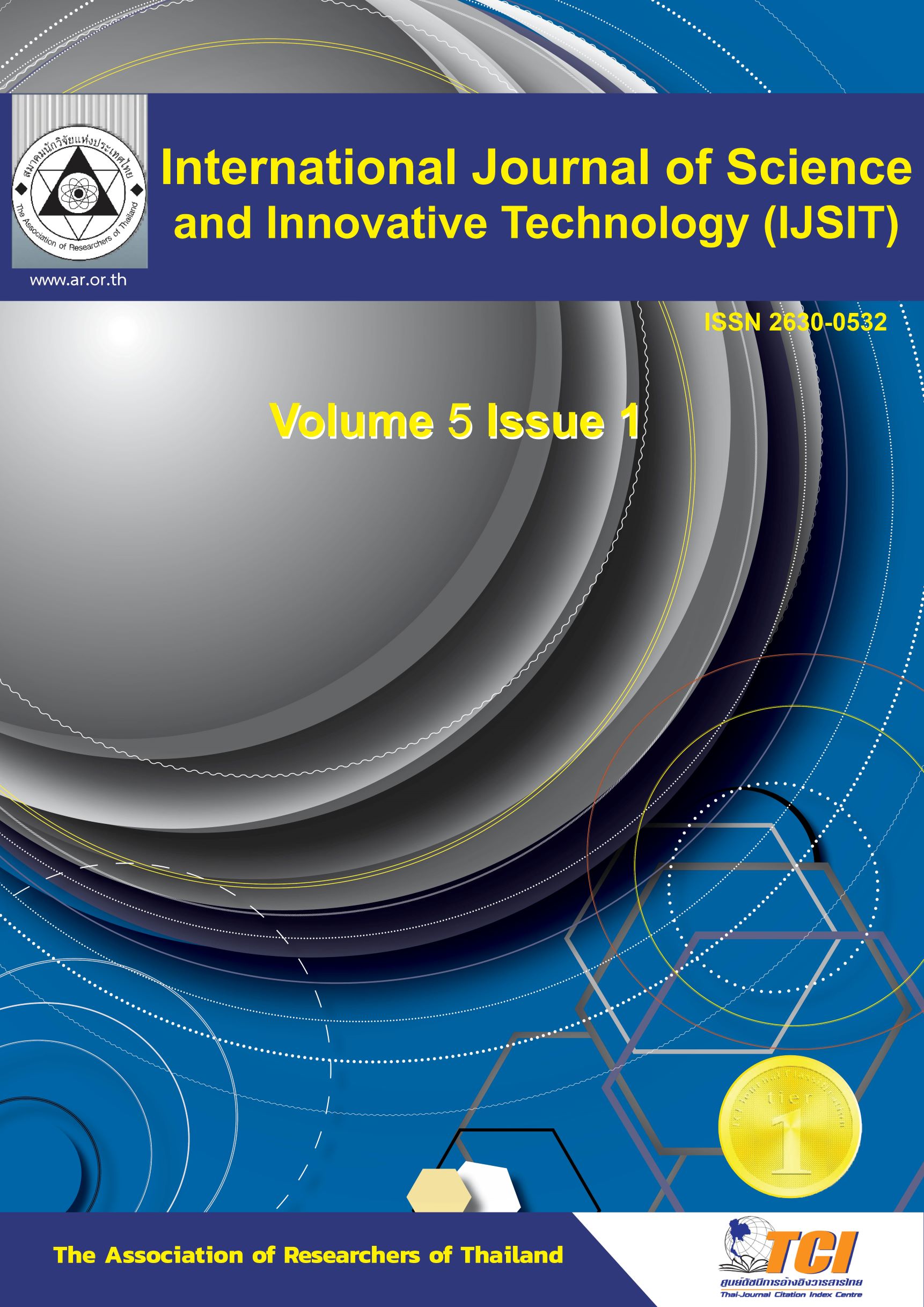Determinants and Moderators of Behavioral Intention to use E-Learning Systems During COVID Era: A Model-Based Cross-Sectional Study in Thailand
Main Article Content
Abstract
This study elaborated on the influencing factors (direct and indirect moderators) of the E-learning utilization in Thailand universities and developed a modified theoretical based on the previous studies combining the factors from different E-learning models. Gender, Age, E-learning Experience, and Technology Innovativeness were included as moderators of direct effects of Perceived Ease of Use and Perceived Usefulness on Attitude. The sample includes 476 students from four public universities in Thailand. Structural equation modeling was used to analyze and develop the theoretical model. Enjoyment was the strongest influencing factor on Perceived Usefulness. Besides, Perceived Usefulness has the greatest total influence on Behavioral Intention to use E-learning. Technology Innovativeness was not a significant moderator for either of direct effects between Perceived Usefulness and Attitude or Perceived Ease of Use and Attitude. Age and Experience moderated the direct effect of Perceived Ease of Use on Attitude. This study enhances the current knowledge related to behavior and attitude toward as well as the determinant factors of E-learning use among Thai students. The results could inform the future practice of digital learning and promote the theoretical understanding of the E-learning framework in similar settings.
Article Details

This work is licensed under a Creative Commons Attribution-NonCommercial-NoDerivatives 4.0 International License.
References
Abdullah, F., & Ward, R. (2016). Developing a General Extended Technology Acceptance Model for E-Learning (GETAMEL) by analysing commonly used external factors. Computers in Human Behavior, 56, 238-256. doi:10.1016/j.chb.2015.11.036
Al-Gahtani, S. S. (2016). Empirical investigation of e-learning acceptance and assimilation: A structural equation model. Applied Computing and Informatics, 12(1), 27-50. doi:10.1016/j.aci.2014.09.001
Chang, C.-T., Hajiyev, J., & Su, C.-R. (2017). Examining the students’ behavioral intention to use e-learning in Azerbaijan? The General Extended Technology Acceptance Model for E-learning approach. Computers & Education, 111, 128-143. doi:10.1016/j.compedu.2017.04.010
Chen, H.-R., & Tseng, H.-F. (2012). Factors that influence acceptance of web-based e-learning systems for the in-service education of junior high school teachers in Taiwan. Evaluation and program planning, 35(3), 398-406.
Cidral, W. A., Oliveira, T., Di Felice, M., & Aparicio, M. (2018). E-learning success determinants: Brazilian empirical study. Computers & Education, 122, 273-290. doi:10.1016/j.compedu.2017.12.001
Davis, F. D. (1985). A technology acceptance model for empirically testing new end-user information systems: Theory and results. Massachusetts Institute of Technology,
El Alfy, S., Gómez, J. M., & Ivanov, D. (2017). Exploring instructors’ technology readiness, attitudes and behavioral intentions towards e-learning technologies in Egypt and United Arab Emirates. Education and Information Technologies, 22(5), 2605-2627.
Elkaseh, A. M., Wong, K. W., & Fung, C. C. (2016). Perceived ease of use and perceived usefulness of social media for e-learning in Libyan higher education: A structural equation modeling analysis. International Journal of Information and Education Technology, 6(3), 192.
Fornell, C., & Larcker, D. F. (1981). Structural equation models with unobservable variables and measurement error: Algebra and statistics. In: Sage Publications Sage CA: Los Angeles, CA.
Gliem, J. A., & Gliem, R. R. (2003). Calculating, interpreting, and reporting Cronbach’s alpha reliability coefficient for Likert-type scales.
Huang, R., Liu, D., Tlili, A., Knyazeva, S., Chang, T., Zhang, X., . . . Zhuang, R. (2020). Guidance on open educational practices during school closures: Utilizing OER under COVID-19 pandemic in line with UNESCO OER recommendation. Beijing: Smart Learning Institute of Beijing Normal University.
Kline, P., & Walters, C. R. (2016). Evaluating public programs with close substitutes: The case of Head Start. The Quarterly Journal of Economics, 131(4), 1795-1848.
Law, K. M., Lee, V. C., & Yu, Y.-T. (2010). Learning motivation in e-learning facilitated computer programming courses. Computers & Education, 55(1), 218-228.
Lee, Y.-H., Hsieh, Y.-C., & Chen, Y.-H. (2013). An investigation of employees' use of e-learning systems: applying the technology acceptance model. Behaviour & Information Technology, 32(2), 173-189.
Lockee, B. B. (2021). Online education in the post-COVID era. Nature Electronics, 4(1), 5-6.
Mac Callum, K., & Jeffrey, L. (2014). Comparing the role of ICT literacy and anxiety in the adoption of mobile learning. Computers in Human Behavior, 39, 8-19.
Mathieson, K. (1991). Predicting user intentions: comparing the technology acceptance model with the theory of planned behavior. Information systems research, 2(3), 173-191.
Ngafeeson, M. N., & Sun, J. (2015). The effects of technology innovativeness and system exposure on student acceptance of e-textbooks. Journal of Information Technology Education: Research, 14, 55.
Sánchez, R. A., & Hueros, A. D. (2010). Motivational factors that influence the acceptance of Moodle using TAM. Computers in Human Behavior, 26(6), 1632-1640.
Straub, D., Boudreau, M.-C., & Gefen, D. (2004). Validation guidelines for IS positivist research. Communications of the Association for Information systems, 13(1), 24.
Taherdoost, H. (2016). Sampling methods in research methodology; how to choose a sampling technique for research. How to Choose a Sampling Technique for Research (April 10, 2016).
Thomas, T., Singh, L., & Gaffar, K. (2013). The utility of the UTAUT model in explaining mobile learning adoption in higher education in Guyana. International Journal of Education and Development using ICT, 9(3).
Venkatesh, V., & Davis, F. D. (2000). A theoretical extension of the technology acceptance model: Four longitudinal field studies. Management science, 46(2), 186-204.
Yakubu, M. N., & Dasuki, S. (2018). Assessing eLearning systems success in Nigeria: An application of the DeLone and McLean information systems success model. Journal of Information Technology Education: Research, 17, 183-203.


